

July 12, 2019
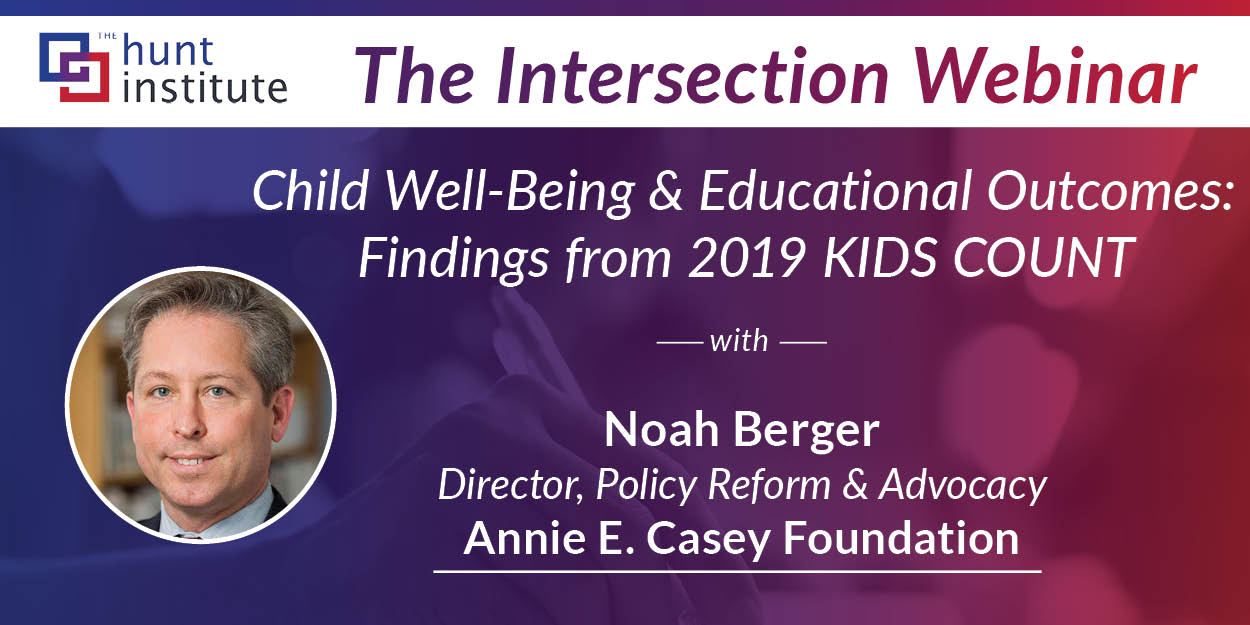
Policymakers across the country are increasingly relying on the use of data to make informed, strategic decisions on complex issues facing children. We recently had the opportunity to observe the importance of data first-hand at The Hunt Institute’s 2019 Early Childhood Leadership Summit. During the Summit, state teams utilized data highlighting key demographics and measured outcomes for their individual states to identify opportunities to improve early childhood systems through policy changes.
This week, we were fortunate to have Noah Berger, Director of Policy Reform & Advocacy for the Annie E. Casey Foundation, join us for our Intersection Webinar to give a broad audience the chance to explore additional data about young children. Noah reviewed the Foundation’s 2019 KIDS COUNT, an annual comprehensive project and premier source of data on children and families.
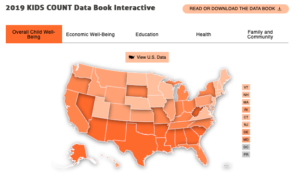 Using 2017 data, the 2019 KIDS COUNT Data Book assesses child well-being in the United States, focusing on 16 indicators measured across four areas: education, economic well-being, health, and family and community.
Using 2017 data, the 2019 KIDS COUNT Data Book assesses child well-being in the United States, focusing on 16 indicators measured across four areas: education, economic well-being, health, and family and community.
Since its original release in 1990, the child population in the U.S. has increased from 64.2 million to 73.7 million kids in 2017. Not surprisingly, the current population of children is more diverse, with children of color increasing from 31 percent to 47 percent of all children. The 2019 KIDS COUNT data revealed that while measurable progress has been seen over the last 30 years, there is still much work that needs to be done to ensure that all children have equal opportunities to thrive.
Learn more about the 2019 KIDS COUNT from our key takeaways and full webinar recording below.
Key Takeaways | Child Well-Being & Educational Outcomes: Findings from 2019 KIDS COUNT
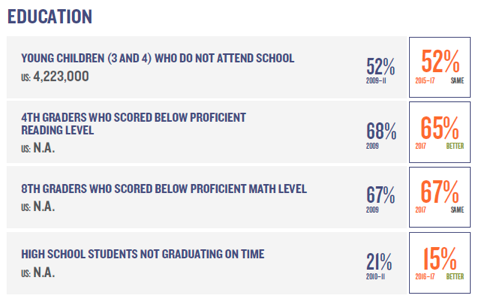
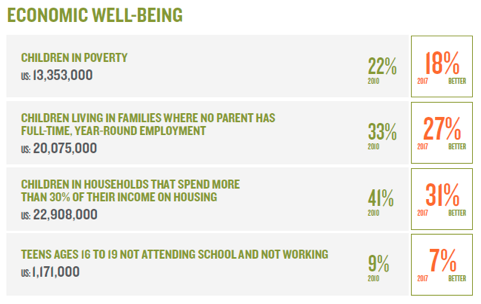
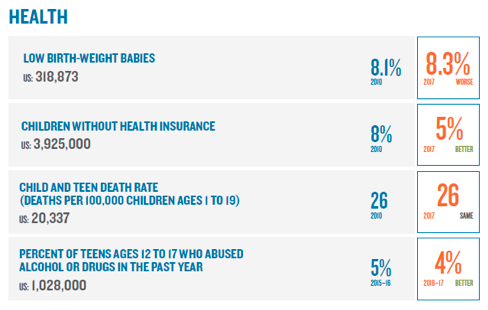
Watch the webinar below:
Save the dates for our next Intersection Webinars: July 31, Aug. 14, Aug. 28, and Sept. 11. Topics range from higher education to innovation in state testing to culturally responsive teaching.
See you at The Intersection!

The Hunt Team